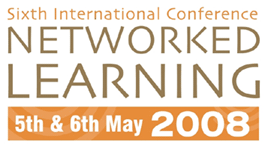

Online Learning Groups Development: A Grounded International Comparison
Lucilla Crosta, Prof. David McConnell,
Department of Educational Research, University of Lancaster
l.crosta@lancaster.ac.uk; david.mcconnell@lancaster.ac.uk
Abstract
This paper is the result of an extract of a PhD study in Educational Research carried out at the Lancaster University (UK) between 2003 and 2007, in its conclusive stage. The intent of this work is that of describing and analysing through a comparative case study, how online learning groups may evolve into online learning communities. The contexts chosen were two respectively blended and online Master courses in education delivered in Italy and United Kingdom (UK). The former was a Master in Online Education and Training (MOET) run by the Bocconi University in Milan, the latter a Master in Education (MEd) run by the Lancaster University.
The Research involved the collection of a huge amount of qualitative data and the use of Grounded Theory Approach for the analysis of the text messages exchanged in the designated course forums. Seven and four online groups were respectively studied both as participant observer (online tutor) and as non-participant observer. The four months Assessment forums of workshop One of the MEd were analysed together with six months forums of the MOET .
The paper will present at first some theorization about online learning group development and design, it will then illustrate the characteristics of this study and then its final findings and comparisons as the result of one year work. This research lead to the production of several categories and key elements virtual group development related such as: tutoring, collaboration, autonomy, technological anxiety, social relationship, assessment, developmental stage, significant facts and major agreement. The different combination and degree of intensity of each category defined in their turn, three different Online Group Developmental Model such as: Product-Oriented-Model; Product/Process-Oriented-Model and Process-Oriented-Model. The characteristics of each Model are clearly described and discussed in the paper.
The theory Building process at the basis of this study involved the construction of categories respecting at the same time, the uniqueness of each groups and the complexity of reality. The final discussion will lead to the conclusion on how both the context and the course design played significant influences on both the degree of collaboration and autonomy reached by the groups and their evolution into online learning communities. Each group developmental process is then the result of a complex mix of different influential factors.
| About NLC |
2008 Conference Papers
| Conference Committee| Keynote
Speakers
| Papers from previous NL conferences |Research Seminars| Current Conference
| Sponsors | Contact
|
